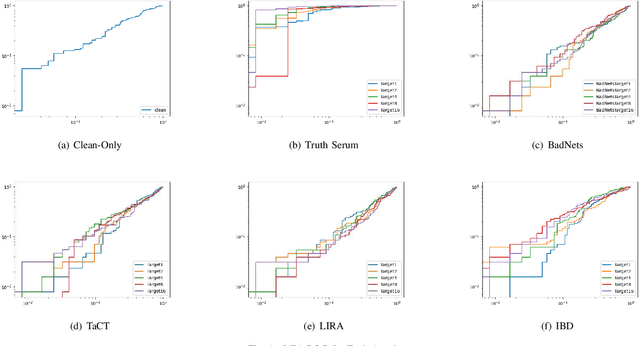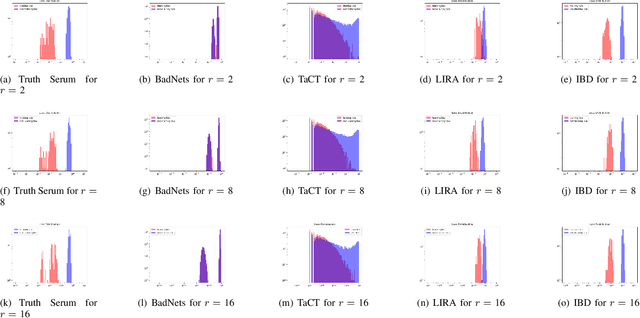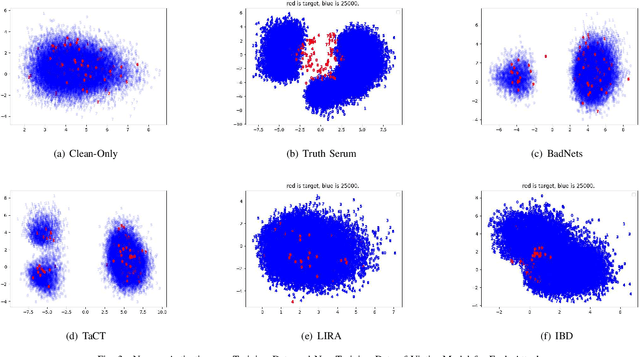Yumeki Goto
Privacy-Preserving Taxi-Demand Prediction Using Federated Learning
May 21, 2023Abstract:Taxi-demand prediction is an important application of machine learning that enables taxi-providing facilities to optimize their operations and city planners to improve transportation infrastructure and services. However, the use of sensitive data in these systems raises concerns about privacy and security. In this paper, we propose the use of federated learning for taxi-demand prediction that allows multiple parties to train a machine learning model on their own data while keeping the data private and secure. This can enable organizations to build models on data they otherwise would not be able to access. Evaluation with real-world data collected from 16 taxi service providers in Japan over a period of six months showed that the proposed system can predict the demand level accurately within 1\% error compared to a single model trained with integrated data.
Do Backdoors Assist Membership Inference Attacks?
Mar 22, 2023



Abstract:When an adversary provides poison samples to a machine learning model, privacy leakage, such as membership inference attacks that infer whether a sample was included in the training of the model, becomes effective by moving the sample to an outlier. However, the attacks can be detected because inference accuracy deteriorates due to poison samples. In this paper, we discuss a \textit{backdoor-assisted membership inference attack}, a novel membership inference attack based on backdoors that return the adversary's expected output for a triggered sample. We found three crucial insights through experiments with an academic benchmark dataset. We first demonstrate that the backdoor-assisted membership inference attack is unsuccessful. Second, when we analyzed loss distributions to understand the reason for the unsuccessful results, we found that backdoors cannot separate loss distributions of training and non-training samples. In other words, backdoors cannot affect the distribution of clean samples. Third, we also show that poison and triggered samples activate neurons of different distributions. Specifically, backdoors make any clean sample an inlier, contrary to poisoning samples. As a result, we confirm that backdoors cannot assist membership inference.
 Add to Chrome
Add to Chrome Add to Firefox
Add to Firefox Add to Edge
Add to Edge